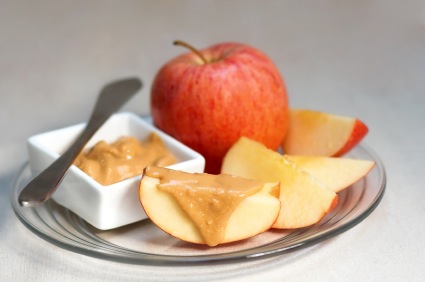 I read an interesting post this week about a mom who has had it with constantly being asked to bring snacks for her kids' every event. While it's true we typically advocate snacking, it made me wonder if it really is appropriate for everyone out there. This lady writer had a point. We never had the vending machines and food on every corner like we do today- and I distinctly remember my parents telling me not to eat too much in the afternoon or I would spoil my dinner.
So I took a look into the research and found only 2 studied reasons that would have us closing our lips to those scrumptious snacks:
I read an interesting post this week about a mom who has had it with constantly being asked to bring snacks for her kids' every event. While it's true we typically advocate snacking, it made me wonder if it really is appropriate for everyone out there. This lady writer had a point. We never had the vending machines and food on every corner like we do today- and I distinctly remember my parents telling me not to eat too much in the afternoon or I would spoil my dinner.
So I took a look into the research and found only 2 studied reasons that would have us closing our lips to those scrumptious snacks:
First, a recent study examined the impact of a snack consumed after a standard lunch but before the subjects became hungry. The researchers fed subjects a snack (400 kcal) at various times after a 1300-kcal lunch when they were not hungry. The snack neither reduced the amount of food consumed at the dinner meal nor increased the time before the subjects requested their dinner meal. Therefore, snacking when you are aren't hungry may only add to your total caloric consumption without adequately changing our total daily input in the end.
Second, it would appear that we are less likely to need the smaller more frequent meals when we eat a lower glycemic loaded meal than a higher one. A high glycemic meal would be anything that causes a sharp rise in insulin, so things like refined carbohydrates and sugar. IN other words, when we make better choices with our meals by eating foods high in fiber, healthy fat, and protein, we automatically reduce our need for snacks because our body takes longer to digest these foods, and therefore doesn't need the frequent snacking to keep up it's metabolism.
That said, there are so many studies supporting the use of snacking for so many beneficial reasons, it seems ridiculous not to have a snack or 2 a day as long as you are aware of your total intake over the course of the day and adjust your portions accordingly. Here's some of the many studied benefits to snacking a couple times a day:
- Weight maintenance: One study used NHANES data to determine associations between snacking frequency and overweight/abdominal obesity. The study found inverse relationships between snacking frequency and mean body weight, BMI, the percentile of BMI-for-age, and waist circumference among participating adolescents. In this same study, prevalence for over-weight/obesity and the occurrence of abdominal obesity decreased as snacking frequency and energy consumed from snacks increased.
- Weight Loss: Hunger is more intense before meals than before snacks. The satiety ratio was quantified and found to be higher for snacks than meals.
- Sustained energy: Eating a morning snack can help offset the effect of a small breakfast (although getting a big breakfast is preferred!)
- Improves diet quality: When we aren't starving we make better choices.
- Helps manage Diabetes
- Assists in raising healthy eaters
- Prevents pre-term deliveries in pregnancy
Overall the verdict is still out, but more often than not, eating small snacks is a good choice. Especially when that choice includes veggies, fruits, and healthy fats.
Here's a list of 100 healthy snacks under 100 calories to get you packing those yummy snacks!